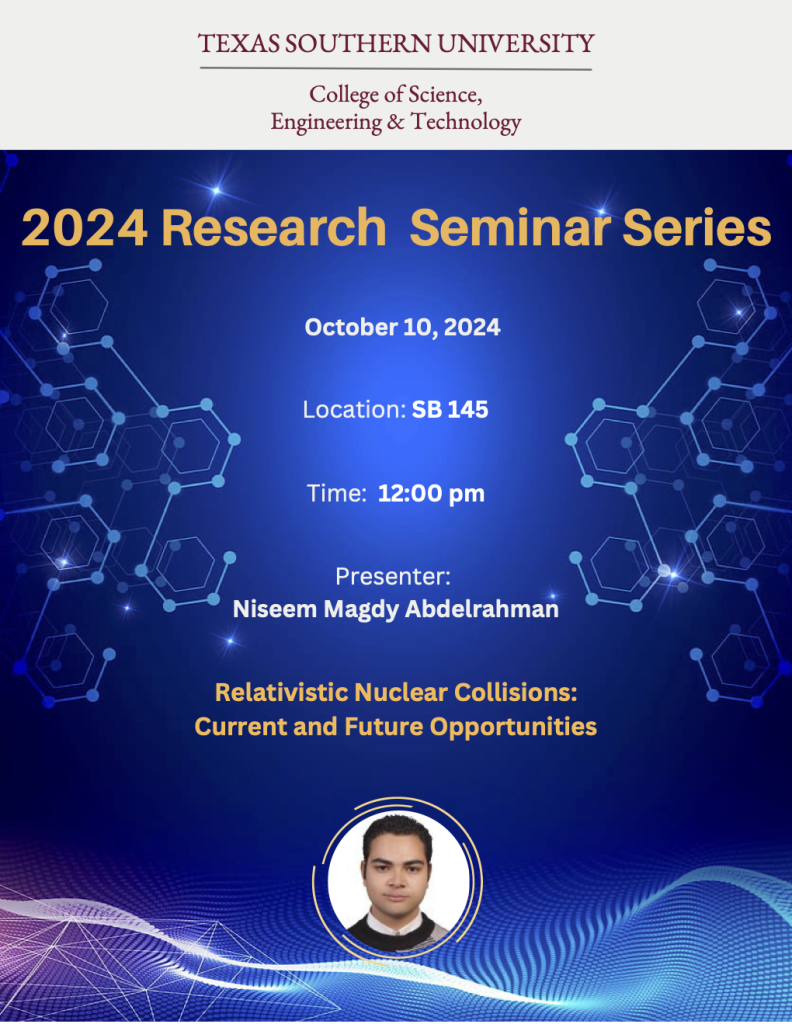or keep pressing Tab key no navigate
October 10, 2024
Location: SB 145
Time: 12:00 pm
Presenter: Niseem Magdy Abdelrahman
Relativistic Nuclear Collisions: Current and Future Opportunities
Abstract:
In relativistic nuclear collisions, often referred to as ‘Little Bangs,’ we recreate conditions akin to the early moments of the Big Bang when the Universe was mere fractions of a second old. These collisions generate a state of matter known as Quark-Gluon Plasma (QGP). Over decades, numerous experiments at both the USA’s Relativistic Heavy Ion Collider (RHIC) and the EU’s Large Hadron Collider (LHC) have been dedicated to studying the QGP, yielding invaluable insights. Concurrently, various theoretical frameworks have emerged to elucidate and predict the behavior of the QGP. This presentation will provide a historical retrospective on our understanding of the QGP and its characteristics while also exploring the potential research opportunities offered by the forthcoming Electron-Ion Collider in the USA.
Dr. Niseem Abdelrahman is a Postdoctoral Research Associate at the University of Tennessee, Knoxville. He earned his Ph.D. from the State University of New York at Stony Brook, where he conducted research as a part of the STAR experiment at the Relativistic Heavy Ion Collider. Dr. Abdelrahman has also held postdoctoral positions in the Physics Departments at the University of Illinois at Chicago and Stony Brook University. In 2024, Dr. Abdelrahman was awarded the RHIC-AGS Users Merit Award for his significant contributions to uncovering the viscous and chiral properties of the medium formed in Relativistic Heavy Ion Collisions across various systems and energies.
Light lunch will be served.
